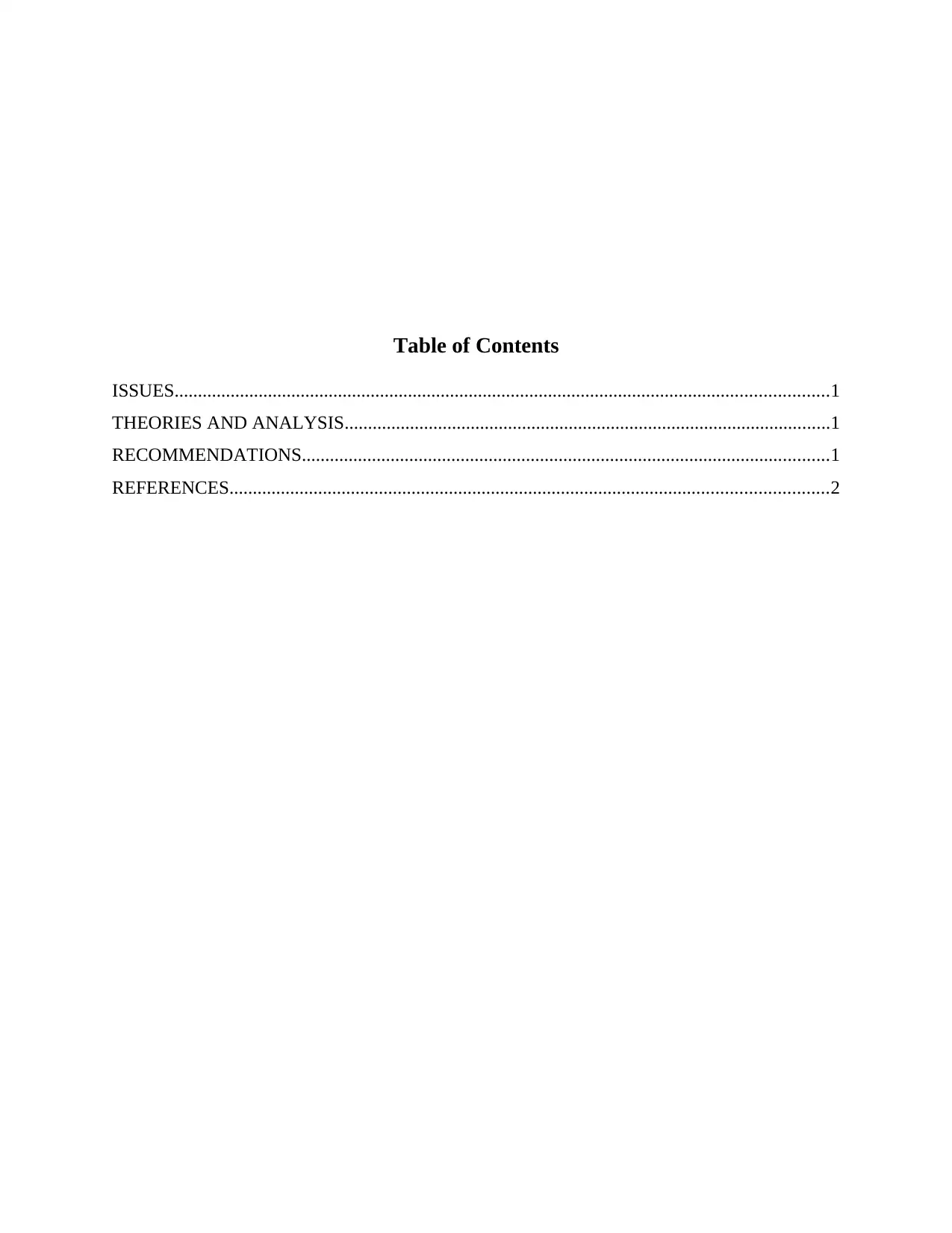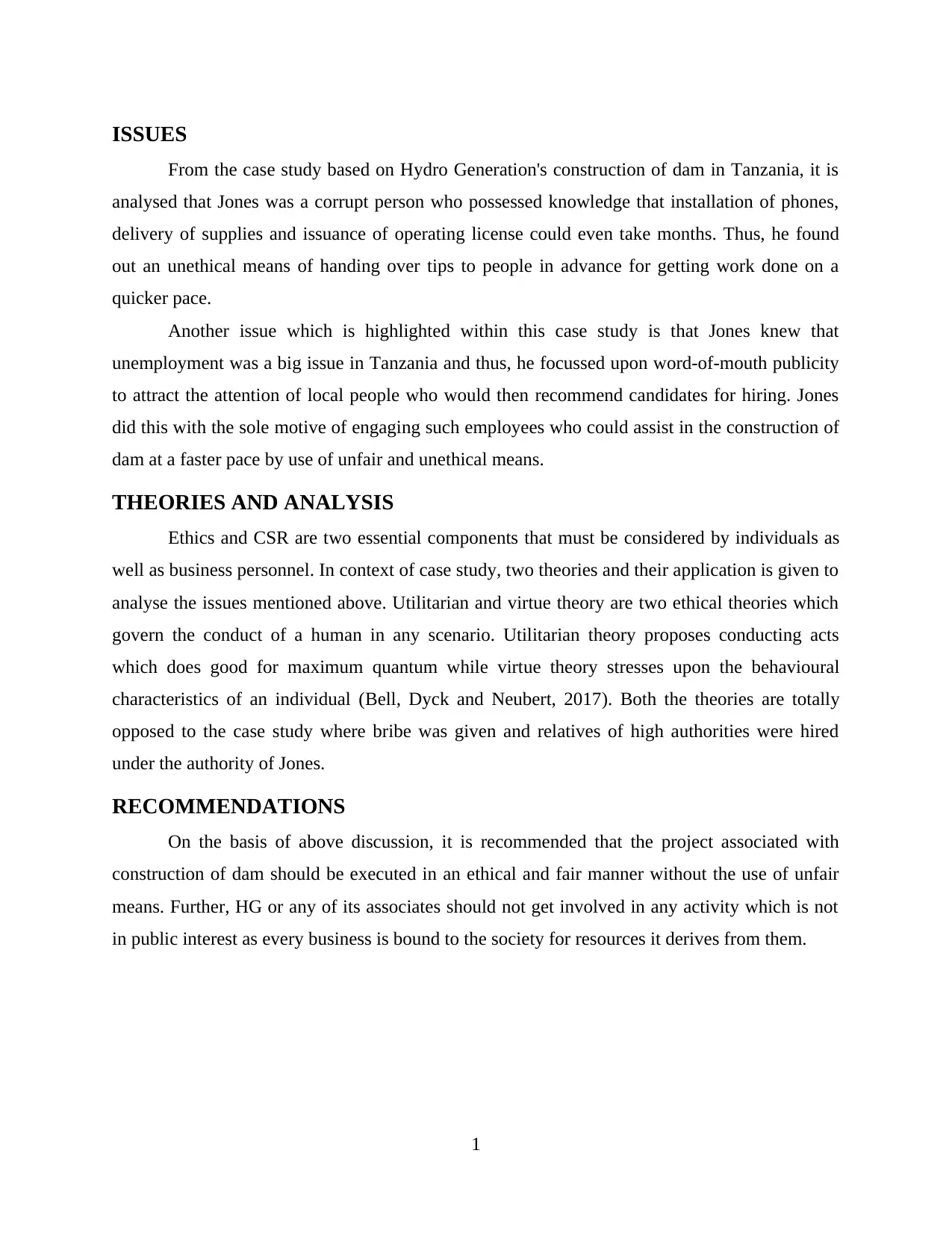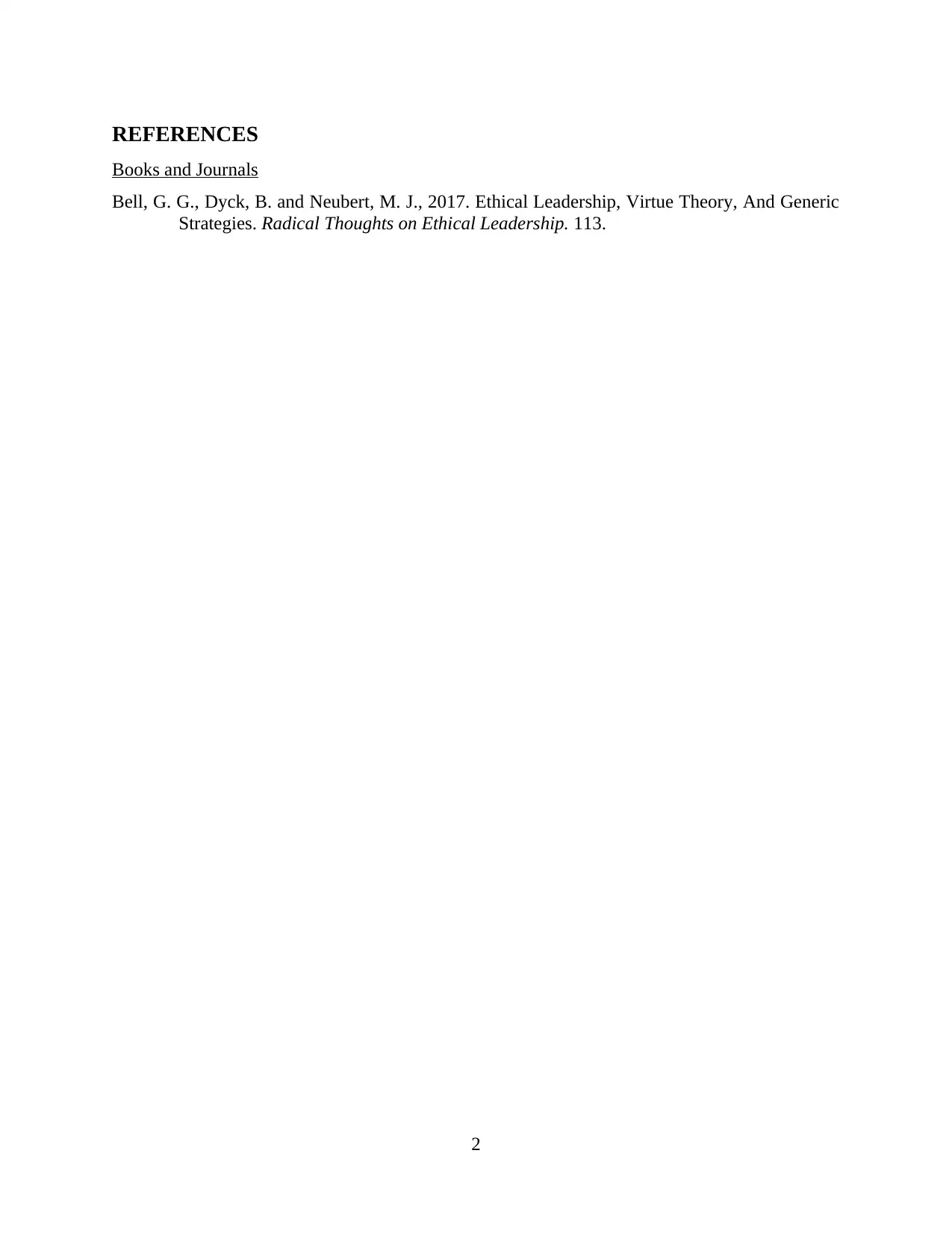Cross Cultural Management: Report on Ethical Leadership and Practices
VerifiedAdded on 2020/12/09
|4
|391
|453
Report
AI Summary
This report analyzes a case study on cross-cultural management, specifically focusing on the ethical implications of leadership decisions within a construction project in Tanzania. The report examines the actions of an individual, highlighting issues such as bribery and unethical hiring practices. The analysis utilizes two key ethical theories: Utilitarianism and Virtue Theory, to evaluate the actions taken. The report recommends that businesses operate with ethical practices and consider their impact on the community. It emphasizes the importance of fair practices and avoiding any actions that could be considered as unethical, thus ensuring the long-term sustainability of the project and the organization's reputation. The report concludes with a list of references to support its claims.
1 out of 4











![[object Object]](/_next/static/media/star-bottom.7253800d.svg)